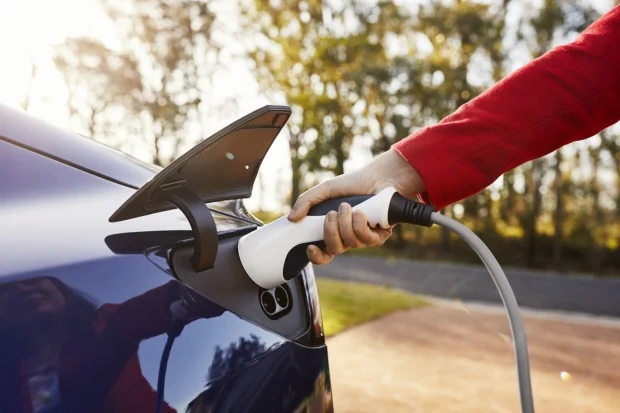RETHINK
Why tech companies are wrong to think electric cars are a solution to climate change
Electric cars are not the solution to climate change, says Paris Marx
Electric cars are not the solution to climate change, says Paris Marx – Copyright euronews
By Thomas Duthois & Anca Ulea & Benjie Croce • Updated: 19/09/2022 – 12:00
When it comes to climate change, transport is one of the most important factors we need to consider.
Governments are pushing consumers to invest in cleaner, electric-powered vehicles to limit the ecological impact of our journeys.
And car manufacturers are fighting for our attention (and our money) with new technologies to get us to invest in their latest electric vehicle models.
But for Paris Marx, author of the book ‘Road to Nowhere,’ these companies are mistaken in their tech approach.
The high-speed railway that’s uncoupling the Baltic states from Russia and their Soviet past
Transport shapes society
Transport plays a crucial role in our daily lives and, by extension, in the way our cities are designed and built.
“It’s how we get around, it’s how we get to work, how we get to the shop, how we see the people that we care about,” said Marx.
And so, for them, the predominant mode of transport determines how we shape our streets, the location of businesses, workplaces and homes.
But more than that, transport also defines how we live.
15-minute city: Could reshaping where we live be the key to a happier life and saving the planet?
Electric cars are not the solution
Tech companies offer to replace – little by little – vehicles equipped with internal combustion engines, which are considered too polluting, with electric vehicles which have a much lower carbon footprint.
But lower doesn’t mean zero either.
It’s true that fully electric vehicles do not emit waste products but the batteries that supply energy to the vehicle are made of minerals like lithium and cobalt which have an impact on climate change.
“In order to create an electric car, a lot of minerals need to be mined and much of that will continue to happen in the global south. And those mines have incredible environmental and health impacts in the places that they exist,” explained Marx.
The priority should therefore not be to replace every car with its electric equivalent but rather to rethink mobility in general.
“Placing so much focus on the automobile and even now the electric automobile is not the way that we solve our mobility problems, but rather it’s time to invest in transit, in cycling, in walkable cities, to get people out of cars altogether,” they said.
The world’s cycling nation: How the Netherlands redesigned itself as a country fit for bikes
Changes need to be fair
For Marx, change is needed to ensure a better future for our planet, and for that change to be beneficial to our society as a whole, it must be done fairly.
And to do this we need to understand that the transformation of our mobility is part of a set of changes that are necessary.
“The mobility system is one piece of this, but we also need to pay attention to how it’s in conversation with other systems within the city to ensure that the policies that we take to improve transportation are equitable for everyone, and not just the people who can afford to live in the areas where those improvements are made,” they said.
For more on this story, watch the video in the media player above.
Special thanks to Zedwell Picadilly for the filming location.
Additional sources • VIDEO EDITOR: CAMILLE ULIANA – MOTION DESIGNER: MATTHEW ASHE














![Qatar Labor Law In 2020??? [UPDATES]](https://welcomeqatar.com/wp-content/uploads/2020/12/Qatar-Labor-Law-1-696x366-1-324x366.jpg)










